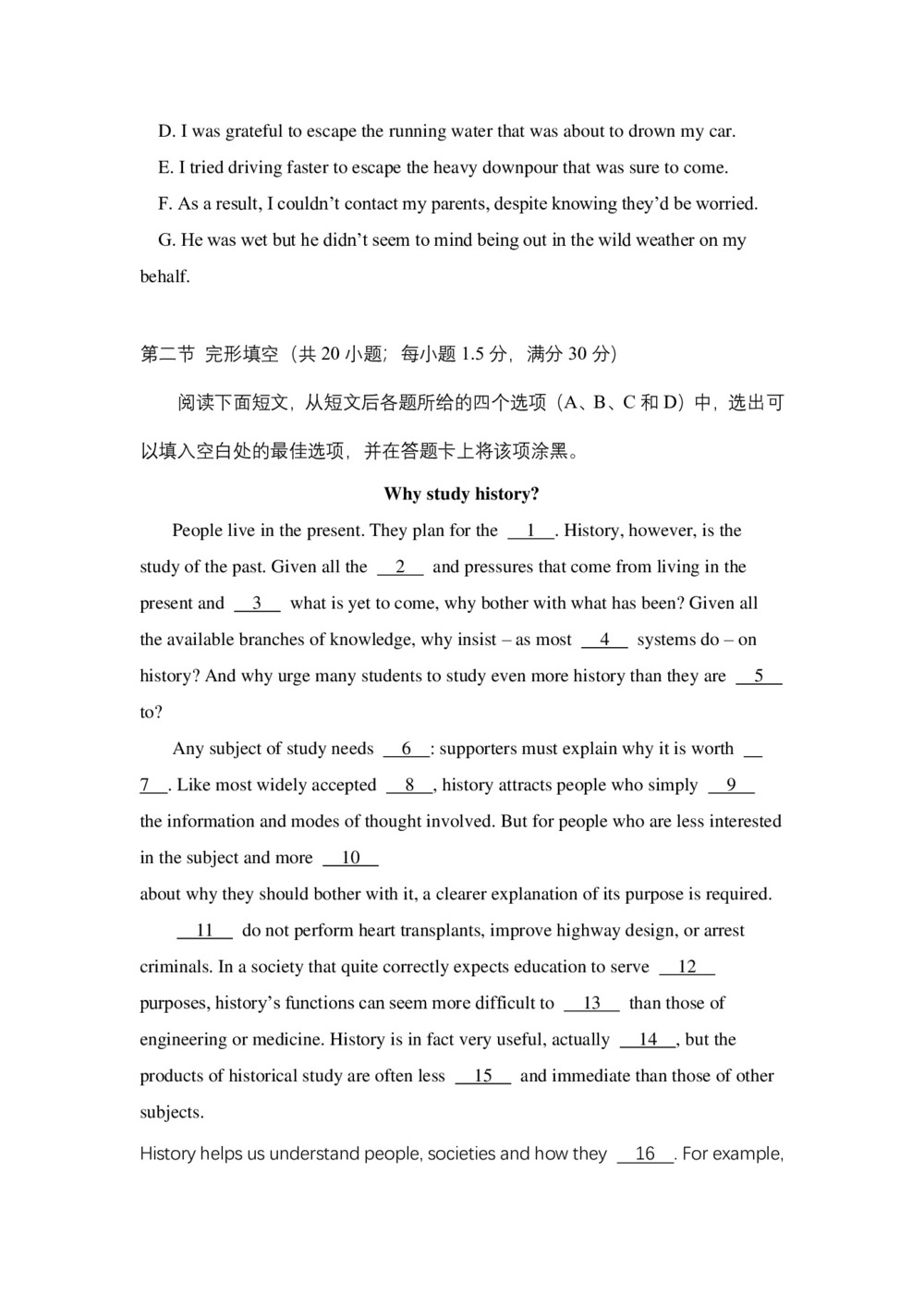
D. I was grateful to escape the running water that was about to drown my car.
E. I tried driving faster to escape the heavy downpour that was sure to come.
F. As a result, I couldn't contact my parents, despite knowing they'd be worried.
G. He was wet but he didn't seem to mind being out in the wild weather on my behalf.
第二节 完形填空(共20小题;每小题1.5分,满分30分)
阅读下面短文,从短文后各题所给的四个选项(A、B、C和D)中,选出可以填入空白处的最佳选项,并在答题卡上将该项涂黑。
Why study history?
People live in the present. They plan for the 1 . History, however, is the study of the past. Given all the 2 and pressures that come from living in the present and 3 what is yet to come, why bother with what has been? Given all the available branches of knowledge, why insist - as most 4 systems do - on history? And why urge many students to study even more history than they are 5 to?
Any subject of study needs 6 : supporters must explain why it is worth 7 . Like most widely accepted 8 , history attracts people who simply 9 the information and modes of thought involved. But for people who are less interested in the subject and more 10
about why they should bother with it, a clearer explanation of its purpose is required.
11 do not perform heart transplants, improve highway design, or arrest criminals. In a society that quite correctly expects education to serve 12 purposes, history's functions can seem more difficult to 13 than those of engineering or medicine. History is in fact very useful, actually 14 , but the products of historical study are often less 15 and immediate than those of other subjects.
History helps us understand people, societies and how they 16 . For example, how can we 17 past wars (and future threats) without using historical materials? Unfortunately, major aspects of a society's operation cannot be set up as precise experiments. 18 , history must serve, however imperfectly, as our 19 , helping
-
相关试卷下载
- 12018--2019学年人教版必修三Unit 1 Festivals around the world learning about language课时作业(1)
- 22018--2019学年人教版必修三Unit 1 Festivals around the world learning about language课时作业(6)
- 32018--2019学年人教版必修三Unit 1 Festivals around the world learning about language课时作业(5)
- 42018--2019学年人教版必修三Unit 1 Festivals around the world learning about language课时作业(3)
- 52018--2019学年人教版必修三Unit 1 Festivals around the world learning about language课时作业(9)
- 62018--2019学年人教版必修三Unit 1 Festivals around the world learning about language课时作业(2)
- 72018--2019学年人教版必修三Unit 1 Festivals around the world learning about language课时作业(7)
- 82018--2019学年人教版必修三Unit 1 Festivals around the world learning about language课时作业(8)
- 92018--2019学年人教版必修三Unit 1 Festivals around the world learning about language课时作业(10)